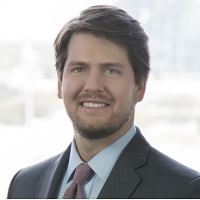
By Alexander Perez and Yiting Hu
After the approval of the I-526 petition and if the priority date is current, EB-5 investors and their families must go through a separate process to request their conditional green cards. Immigrant visa processing through a U.S. consulate or embassy abroad is one of two available options to effectively request the conditional green cards, and will be their only option if they are not already present in the U.S. maintaining a valid non-immigrant status. As required by regulation, consular processing culminates in the personal interview of the EB-5 investor and their dependents at a U.S. consulate or embassy abroad.[1] There are practical solutions for streamlining the consular process for EB-5 investors and their families to request immigrant visas by avoiding the most common pitfalls.
Most EB-5 investors request their immigrant visas from abroad, rather than seeking their conditional green cards from within the U.S. via an adjustment of status. In fact, over the past seven fiscal years, approximately 85 percent of EB-5 investors and their dependents have consular processed an immigrant visa. Much like the EB-5 process as a whole, consular processing is best described as a series of smaller steps that must be completed in order to proceed to the consular interview. Overall, it may take six to nine months for the consular interview to be scheduled after the approval of the I-526 petition approval.
PRE-INTERVIEW PREPARATION
The first step in consular processing is a receipt and payment of the fee bills issued by the National Visa Center (NVC). The NVC typically issues the fee bills within 30 days, but that is not always the case. If there is either a delay in the issuance or not all the family members’ fee bills have been received, a follow-up with the NVC will be required, which can delay the process. It’s good to be proactive in contacting the NVC once the 30 days has passed since the approval of the I-526 petition, as this can save potentially weeks or months to the overall consular processing timeline. Payment of the NVC fee bills can be completed online.
The primary focus of the consular process and visa interview is the admissibility of the EB-5 investor and his or her dependents.[2] Prior to making the EB-5 investment and again prior to the consular interview, the investor and his or her immigration counsel must discuss the personal immigration and criminal history (if any). The most common grounds of inadmissibility include: health-related grounds, prior criminal history, security terror-related grounds, fraud and material misrepresentation, and alien smuggling.[3]
The EB-5 investor must be familiar with the contents of the I-526 petition, as the consular officer may ask questions about either the EB-5 investment project or the investor’s source of funds. The consular officer may engage in these lines of questioning to determine if there was any fraud or misrepresentation associated with the I-526 petition, not a re-adjudication of said petition. Therefore, in preparation for the consular interview, the EB-5 investor should review the EB-5 investment project’s business plan and the source of funds documents.
If an EB-5 investor is unable to attend the scheduled consular interview, then it must be rescheduled per the consulate’s specific instructions. However, the EB-5 investor and family should make all reasonable efforts to attend the interview as scheduled. If the consular interview must be rescheduled, this will add weeks or months onto the overall consular processing timeline.
THE CONSULAR INTERVIEW
Why the Non-Immigrant Visa History Still Matters
The EB-5 investor and their dependents must be prepared to discuss their past U.S. immigration history. Recently, U.S. state and federal government agencies have made a coordinated effort to better detect and eliminate visa fraud.[4][5] A direct impact of these collaborative efforts is that prior information provided on visa applications may be used to compare with information provided in your EB-5 process. As an example, a list of employers provided in the I-526 petition may be compared to a prior DS-160 application for a non-immigrant visa (such as a B-1/B-2 visitor visa) at the time of the EB-5 consular interview. It is advisable to ensure that the information provided during the EB-5 process is consistent with prior disclosures to the U.S. government, since such information may be compared to determine the credibility of the visa applicant.
The consular officer’s questions during the interview may reach back to any prior U.S. visas held before by the applicant, such as a B-1/B-2 visitor visa, an F-1 student visa, J-1 exchange visitor, H-1B, L-1 work visa or an E-1/E-2 treaty trader visa. A responsible EB-5 investor should review prior U.S. immigration history prior to the consular interview. Furthermore, alien smuggling is another ground of inadmissibility that an EB-5 investor may never think will apply to him or her. However, certain consular posts are hotbeds of alien smuggling findings, particularly if an EB-5 investor previously placed a child in a public school in the U.S. as a visitor in violation of U.S. immigration law.
Educate the Consular Officer about EB-5 When Needed
Consular officers receive structured training and generally have knowledge of the specific legal requirements for the type of immigrant visa they are adjudicating. However, certain consular posts process far fewer EB-5 visa applicants than others, so sometimes consular officers misunderstand the specific requirements for EB-5 immigrant visa adjudication. For instance, consular officers have asked for specific evidence of the job-creation requirement having been met, though it is legally premature and not a legal requirement for the issuance of the EB-5 immigrant visa. The EB-5 investor must be his or her own best advocate at the consular interview, since their immigration counsel is not allowed to be present at the visa interview.
Know Your EB-5 Project
The EB-5 investor must be familiar with the EB-5 project. The EB-5 investor will not be expected to discuss the project as detailed as the project developer; however, being familiar with the EB-5 project’s goals, budget, timeline, and current status are highly advisable.
POST-INTERVIEW FOLLOW UP
Effect of Travel Ban and Prolonged Administrative Processing
At the conclusion of an EB-5 immigrant interview, three possible outcomes will follow: approval, denial or administrative processing. Under the Trump administration and current travel ban 3.0 (which largely imposes limits on travel to the United States from several predominantly Muslim nations [6]), EB-5 investors from banned countries should expect further delays on their immigrant visa issuance and subsequent entry to the U.S. Although EB-5 investors from travel ban countries continue to be scheduled for consular interview, there are many who choose to postpone the interview. Those who decide to attend the consular interview should expect a prolonged administrative review of their immigrant visa application.
Although a case-by-case waiver of the travel ban is allowed, each consular post applies the waiver process on an ad hoc basis, so it is highly recommended that EB-5 investors work closely with immigration counsel to appropriately document and present their case for a waiver of the travel ban.[7] The consular officer is neither obligated to make any decision about the applicability of the travel ban at the interview nor is he or she obligated to accept any waiver materials prepared by the applicant. The EB-5 investor should be prepared to explain at the interview in a simple yet convincing manner why he or she qualifies for a travel ban waiver and then wait for the consulate’s instructions to submit any written materials and evidence in support of the waiver post-interview.
Practice Pointers for EB-5 Immigrant Visa Recipients
For those who successfully pass the consular interview are issued an EB-5 immigrant visa to enter the U.S. to begin their life as a lawful permanent resident. When traveling to the U.S. for the first time using the newly issued immigrant visas, the EB-5 principal must seek entry to the U.S. either prior to or at the same time as his or her family members. There are some practical tips so that the process is concluded smoothly.
Pay USCIS Immigrant Fee
The EB-5 investor and the dependents are advised to pay the USCIS immigrant fee prior to their initial entry into the U.S. using their newly issued EB-5 immigrant visas.[8] USCIS will not produce the conditional permanent resident card until the immigrant fee is received after the initial entry with the EB-5 immigrant visa.
Check Validity of Immigration Medical Exam
One should take care to enter the U.S. within the validity of the immigrant visa, which is valid for six months from the date of issuance. However, an applicant’s medical exam may cut short the visa validity period if the medical exam expires before the visa does. In practice, each member of the EB-5 investor’s family is advised to consult immigration counsel and make sure to carry a valid medical exam when entering the U.S.
A Good Mailing Address for Delivery of the Conditional Green Card
The mailing address provided on the filed Form DS-260 is where USCIS will send the conditional permanent resident card. If the EB-5 investor decides to change the mailing address, the best time to do so is upon the initial entry to the U.S. using the EB-5 immigrant visa. Be sure to provide a reliable mailing address where the EB-5 investor is able to receive mail. Do not volunteer a new address (such as a hotel of other temporary residence) if you do not intend to receive mail there. In practice, it is difficult to resolve a mis-delivery or non-delivery of the conditional permanent resident card with USCIS.
Inability to Enter the U.S. within Visa Validity Period
If possible, the EB-5 investor should make the initial entry to the United States while the immigrant visa is valid. However, should you not be able to, it does not invalidate your EB-5 application. Legally and subject to limitation, the visa applicant is still able to rely on the approved Form I-526 petition and request another immigrant visa to be issued. Note that it will be treated as a new consular application, where one should expect to pay the fees and go through NVC application again before being scheduled for an immigrant visa interview.
Consular processing is a rigorous process focused primarily on the admissibility of the EB-5 investor and his or her family. It is also a process that should have a predictable result. If the EB-5 investor is working with an experienced immigration counsel who provides the proper vetting and support, then the EB-5 investor and dependents will most likely be successful.
Notes:
[1] See 22 C.F.R. § 42.62.
[2] Inadmissible aliens are defined in 8 U.S.C. § 1182.
[3] A review of all grounds of inadmissibility and any available waivers is beyond the scope of this article.
[4] See https://www.dhs.gov/blue-campaign/collaboration.
[5] See also https://www.uscis.gov/sites/default/files/USCIS/Resources/Reports/MOU_5.11.2018.pdf.
[6] Currently, the nations included in the travel ban are Chad, Iran, Libya, North Korea, Syria, Venezuela, and Yemen. See https://www.whitehouse.gov/presidential-actions/presidential-proclamation-enhancing-vetting-capabilities-processes-detecting-attempted-entry-united-states-terrorists-public-safety-threats/.
[8] The USCIS Immigrant Fee may be paid online at: https://my.uscis.gov/uscis-immigrant-fee/.
DISCLAIMER: The views expressed in this article are solely the views of the author and do not necessarily represent the views of the publisher, its employees. or its affiliates. The information found on this website is intended to be general information; it is not legal or financial advice. Specific legal or financial advice can only be given by a licensed professional with full knowledge of all the facts and circumstances of your particular situation. You should seek consultation with legal, immigration, and financial experts prior to participating in the EB-5 program Posting a question on this website does not create an attorney-client relationship. All questions you post will be available to the public; do not include confidential information in your question.







